Looking at the weather forecast has been a depressing activity so far this year. As I write this, the sky is overcast and everything looks grey and dull. There is a chance of about 1.5 sunny days later in the week. We shall see.
Last Sunday was one of those days that were supposed to be sunny so I was cautiously optimistic. And for once it actually was and I even managed to get out of bed relatively early with the help of one of my cats. Decided to bring with me the two lenses that have spent the past months awaiting their turn at Skyllaney – Thambar 90mm f/2.2 and Dallmeyer 13.5cm f/4.5.
Headed towards the Brighton Marina but stopped as soon as I hit the seafront as the sight of classic automobiles caught my eye. Motor events happen quite regularly down here, however I have mixed feelings about them. First of all some of them are too crowded and the cars are cordoned off from the public making it difficult to get interesting shots. Secondly, well, let’s just say they are very “men of a certain age” type happenings.
The first (and last) time I went to the annual London to Brighton Veteran Car Run, the most popular car event of the year, whenever a man arrived at the finish line they’d be asked the usual questions about the engine, type of petrol, and other details about their pre-1905 vehicles. But if it happened to be a woman, they’d get the awkward “So… A car’s a woman innit”. C’mon fellas, you can do better.
Anyway, as I later found out this one was also part of some sort of rally originating in London but the cars were mostly from the 1950s and newer. I arrived quite early in the day which worked out nicely, there was a good sample of less than 20 cars and no wild crowds. Excellent conditions for lens testing.
Leitz Thambar 90mm f/2.2
I wrote about this lens last year when I acquired it in a poor state. Chris from Skyllaney managed to shed some light on what happened to it. Turns out the optical block and aperture assembly were made from raw aluminium (not aluminium alloy) which reacted badly with the brass used for the rest of the metal parts and resulted in galvanic corrosion.
In Chris’s own words:
“It’s not often that I see a camera lens that has had galvanic corrosion take place due to the charge potential between dissimilar metals. Much of the rules and remedies regarding dissimilar metals was figured out in the 1960-70’s, when new types of aluminium alloys were introduced to mitigate the galvanic corrosion. Obviously, the Thambar is so old, it predates this scientific knowledge!”
In practice it meant the entire inner assembly would have to be reverse-engineered and replaced as the aperture ring was fused with the other parts. Considering the cost and time required to achieve this I opted for the simpler fixed open aperture option. Chris created a beautiful new focus ring for it as well as performed all the usual CLA. The minimum focus was decreased to 75cm which turned out very useful.
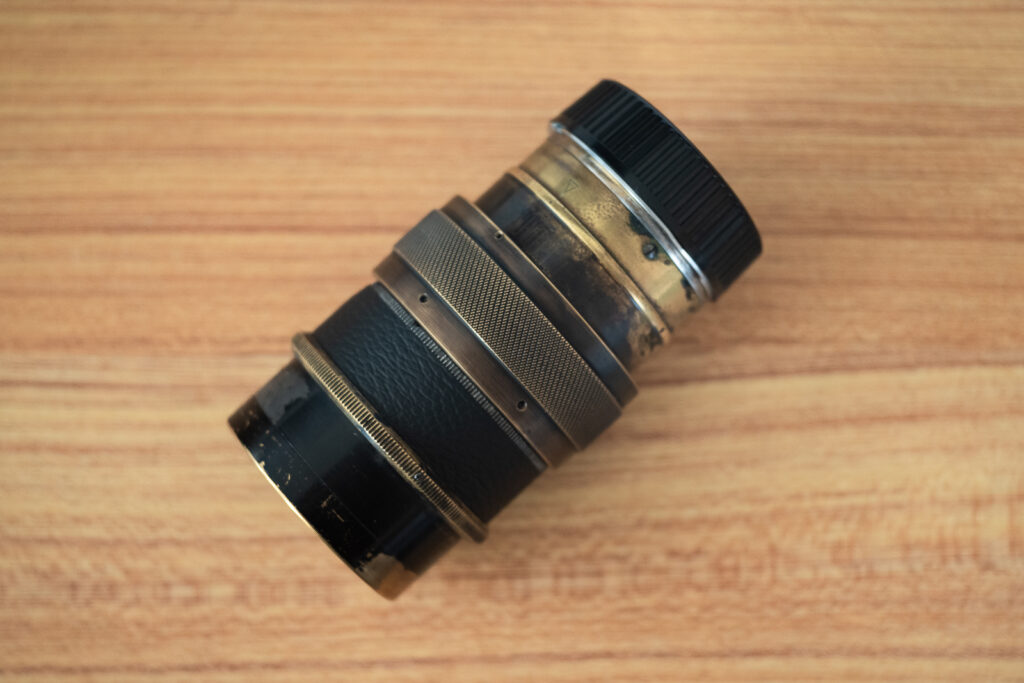
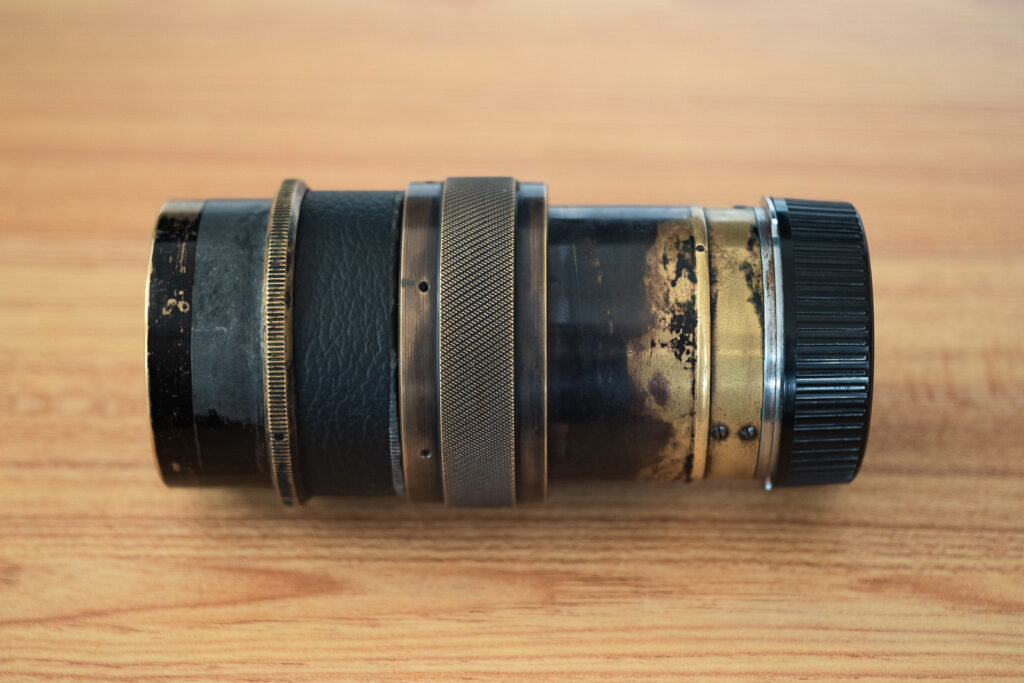
I’ve had the lens back for about a week and took it out a few times. It’s obviously not the sort of lens you can get results with from the get-go and I did expect a learning curve. I was pleased with it but I wanted to love it as much as Petapixel commenters hated it. I needed to figure out how to not allow the sharpness to be consumed by the glow.
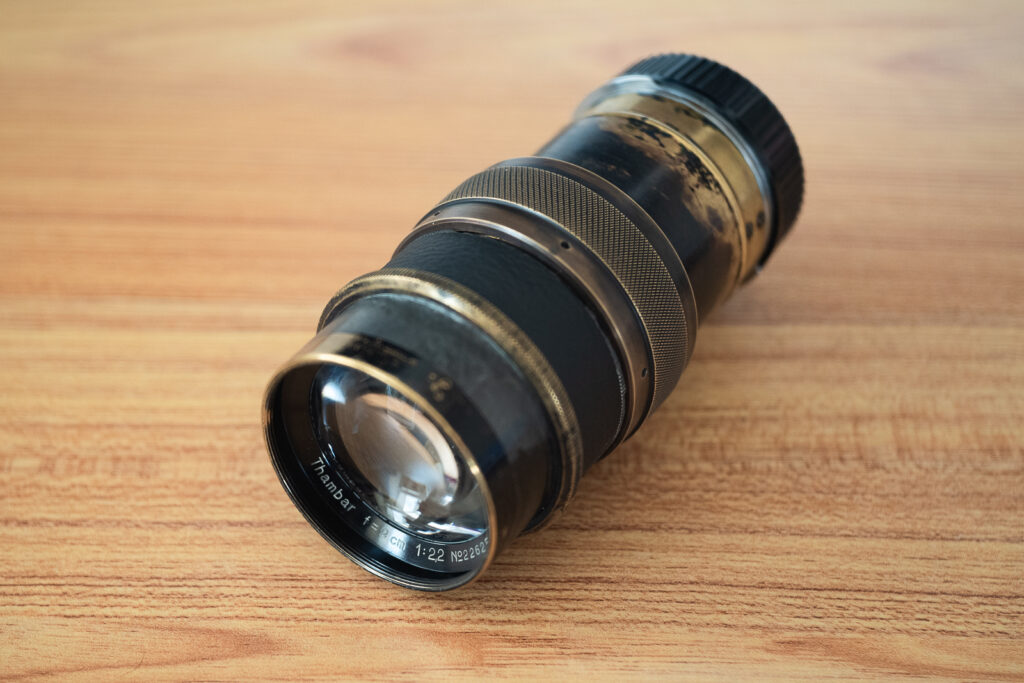
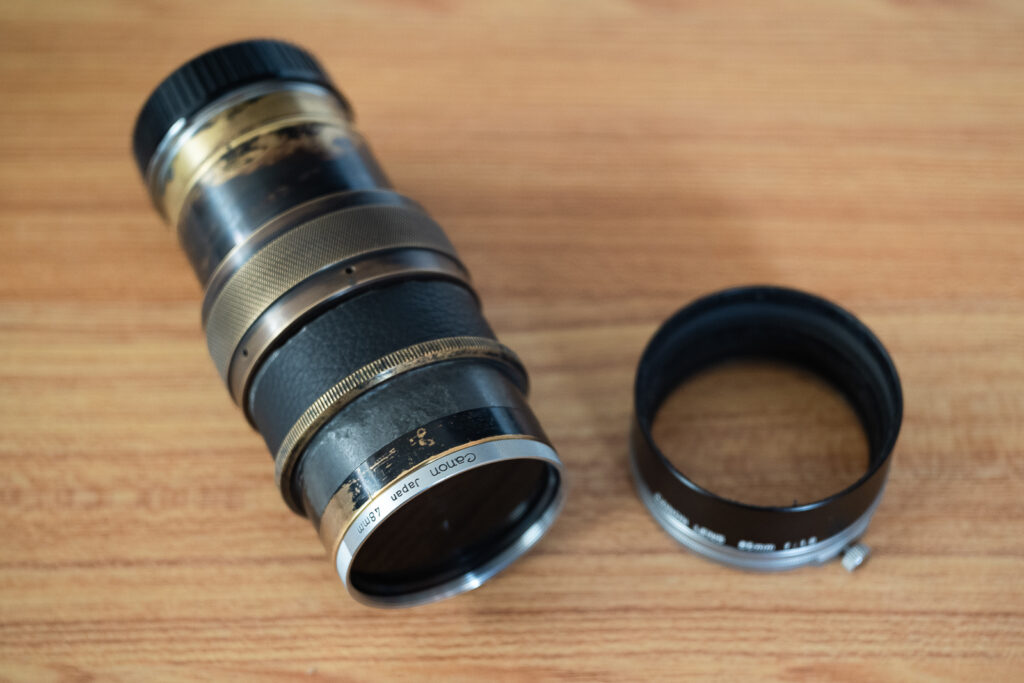
By pure coincidence, the freshly polished vintage cars were just the thing. And the Leica SL paired great with it and allowed me to make sure I was getting the most out of the lens. All week I tried to curb the glow but here I just focused on the task at hand and let the lens do its thing. The resulting images are among my favourite ones from this year so far. The glossy paint, chrome detail, and vibrant colours as well as the approaching midday and slight back-lighting provided optimal conditions. And to think I might have slept in!
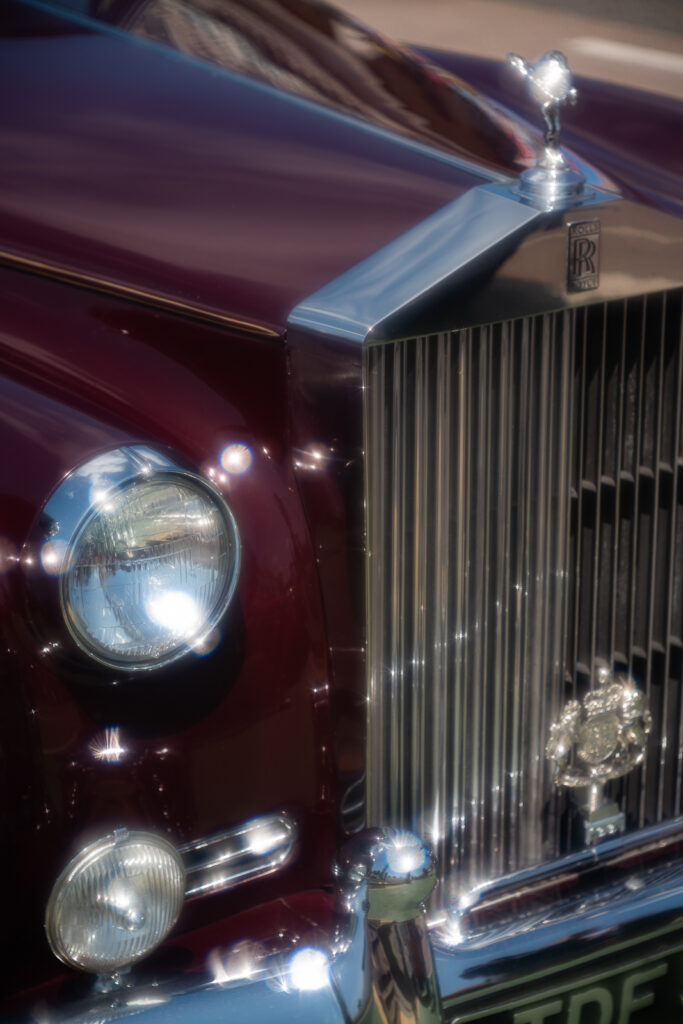
The glow caused by the deliberately under-corrected spherical aberration is quite pronounced and the sun reflecting in the chrome and lacquer creates blue-fringed flower-like artefacts. But the areas that are in focus where this doesn’t happen exhibit very decent sharpness, especially for what was designed to be a soft-focus lens.
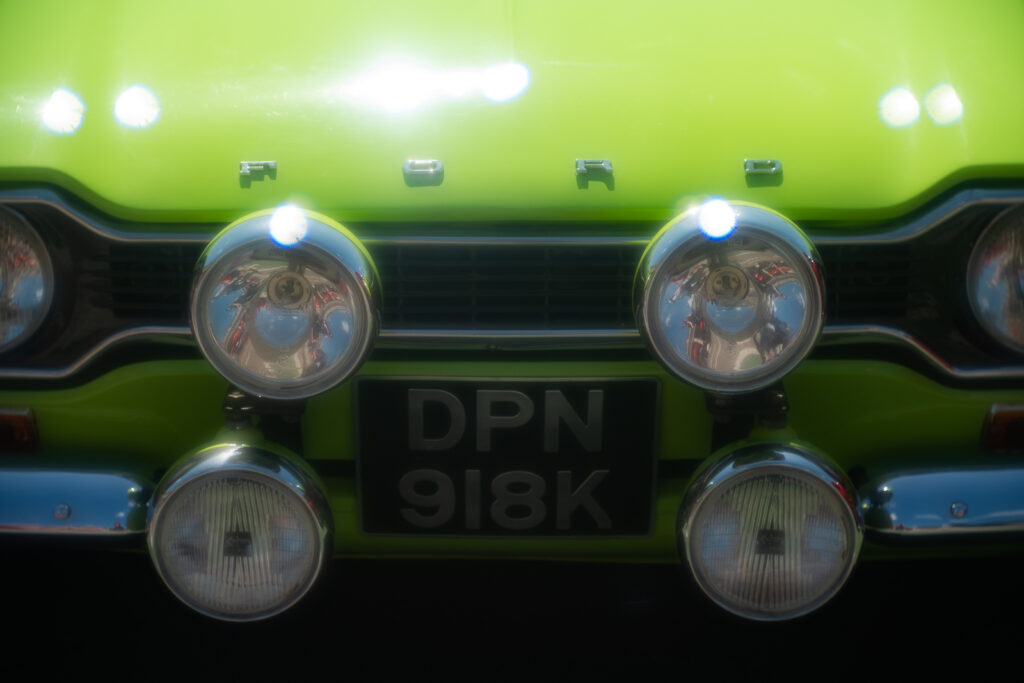
The key to maintaining the perceived sharpness is to not allow the entire in-focus area to glow too much. I’ve seen images taken with the Thambar of white flowers where the subject is just a glowing ghost with no detail. The glow not only eats away the detail but also makes it all the more easy to blow out the highlights.
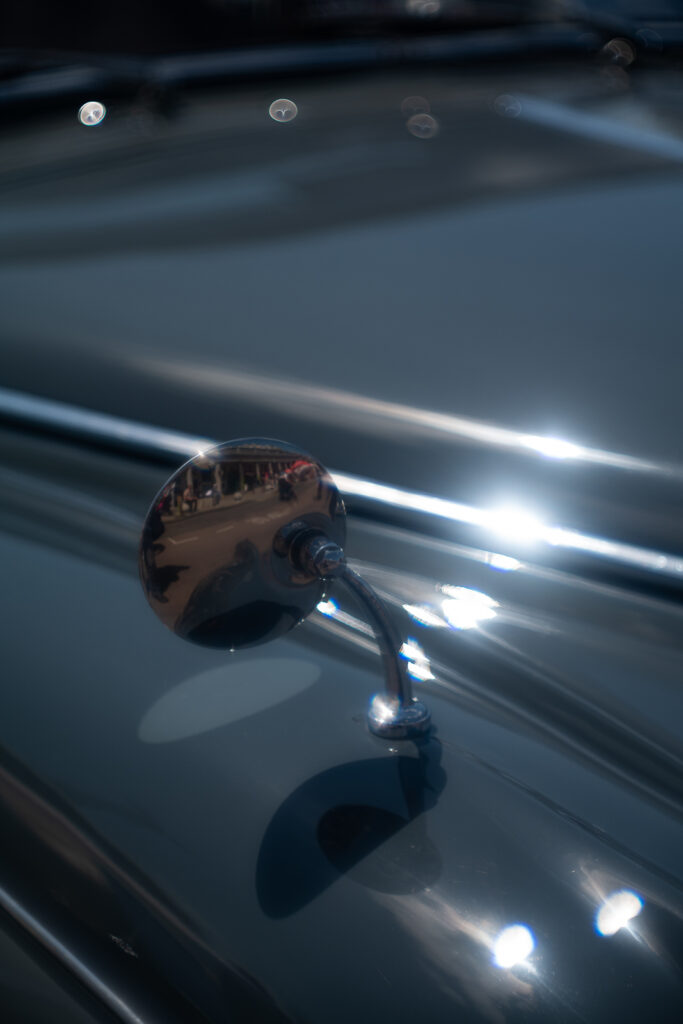
The out-of-focus areas of the image melt away into what almost looks like watercolours while the points of light either form bubbles or jellyfish-like shapes I already mentioned in my previous article. I’m sure there are some who think this can be recreated using a diffusion filter or Photoshop but to me the element of surprise is very much part of the joy of shooting with this lens. I can’t quite predict how this lens will behave in various conditions. I’m looking forward to getting a better feel for it.
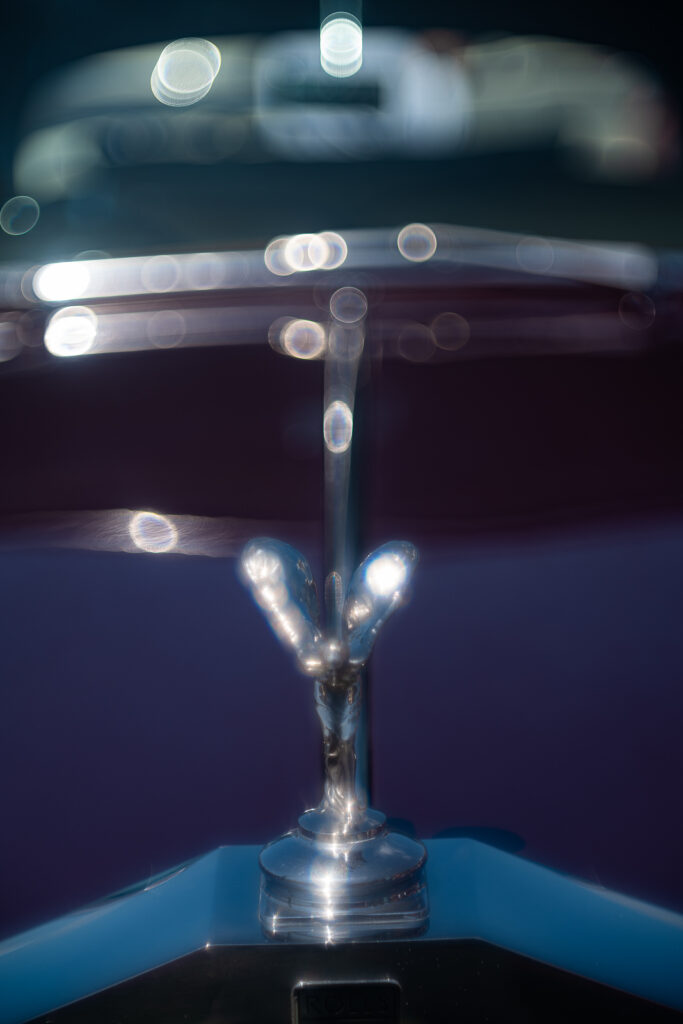
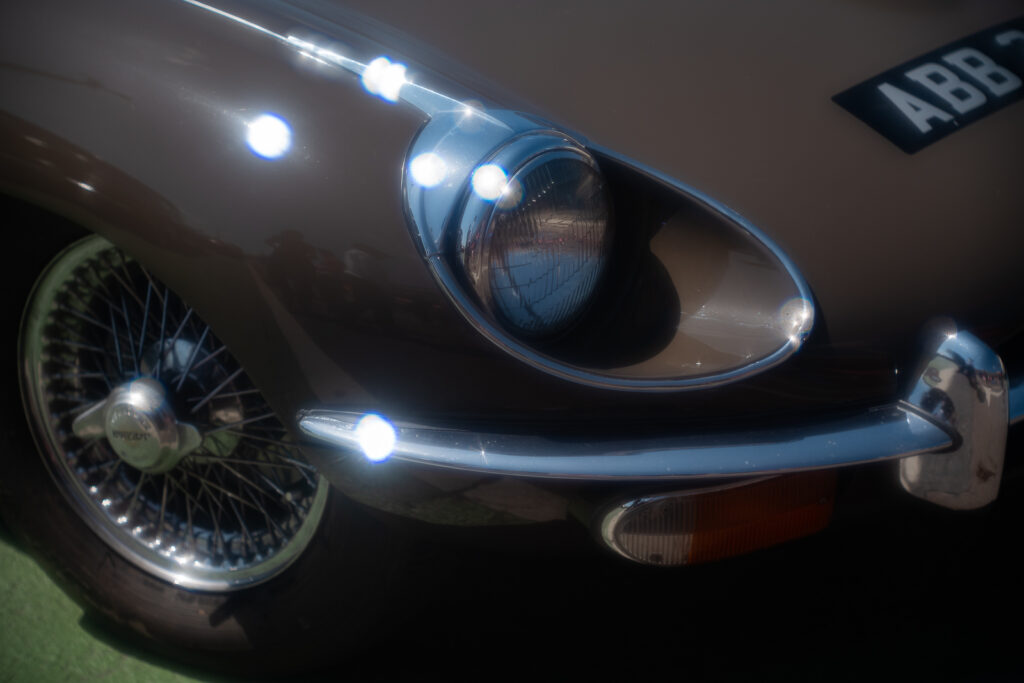
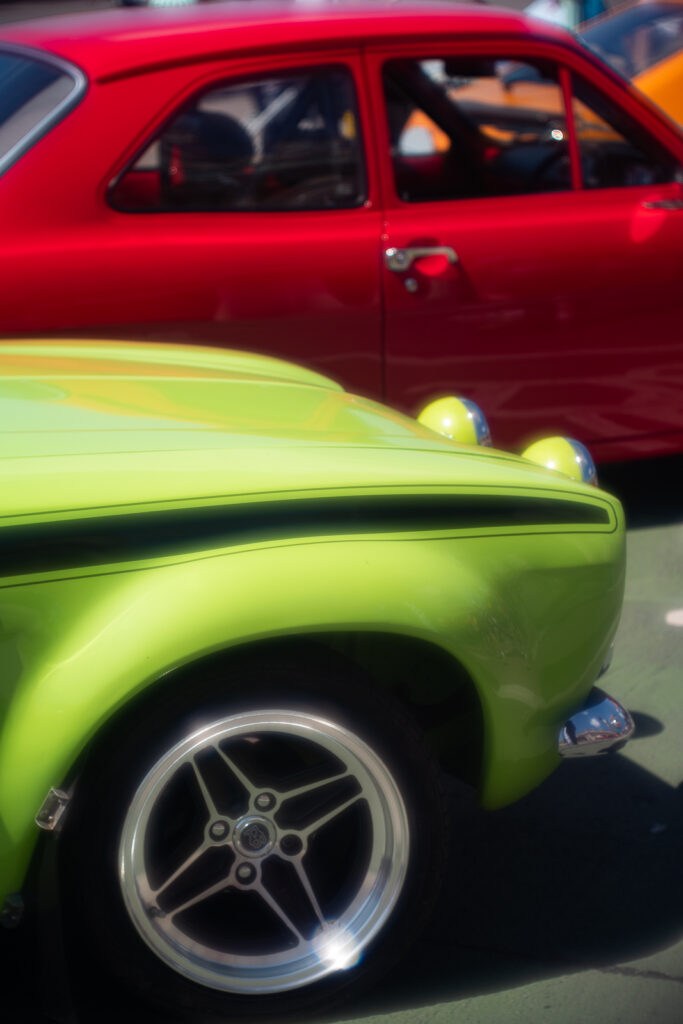
Dallmeyer Dalrac 13.5cm f/4.5
I was entirely focused on the Thambar since I received the parcel and neglected the other Skyllaney patient, the Dallmeyer 13.5cm. There was nothing that required fixing about it, however when I was shooting it last year I quickly noticed quite a large hard vignette. Besides this, the lens was great – sharp, good contrast, and played well with the red filter. You can get away with quite a heavy vignette when you’re shooting black and white and making the sky appear dark, but this one was just too much.
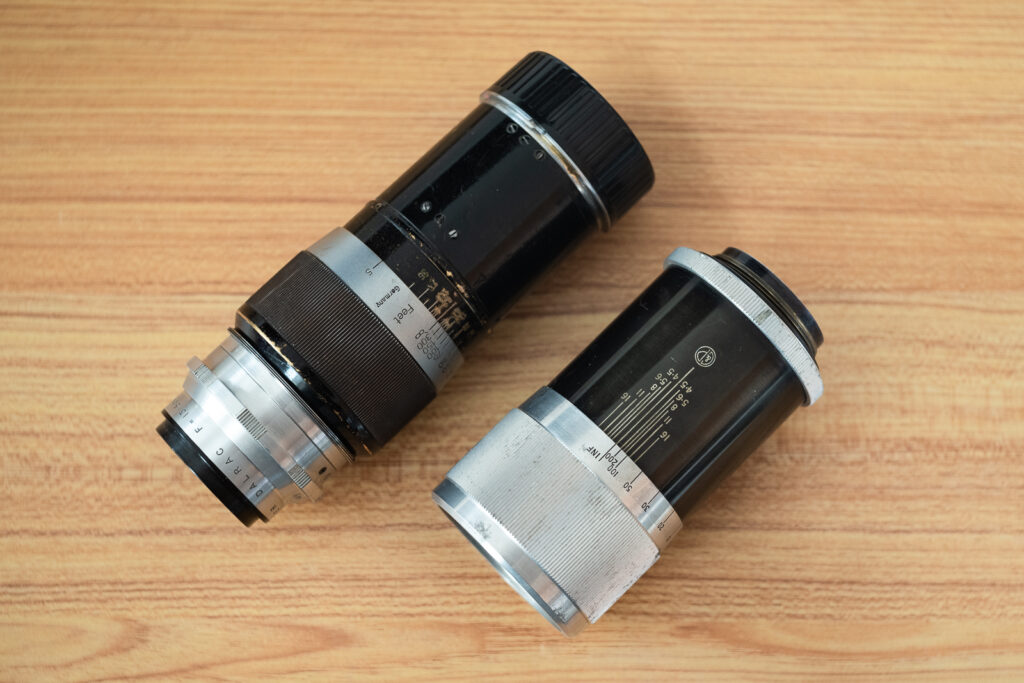
I started reading up about it and came across information about an inspection carried out by the American and British optical engineers in the Leitz factory in Wetzlar following the war. They obtained information on the construction techniques of camera bodies and lenses and used that information to begin manufacturing their own camera equipment. Rangefinder cameras made by Reid and lenses by Taylor Hobson were a direct result of obtaining that intel.
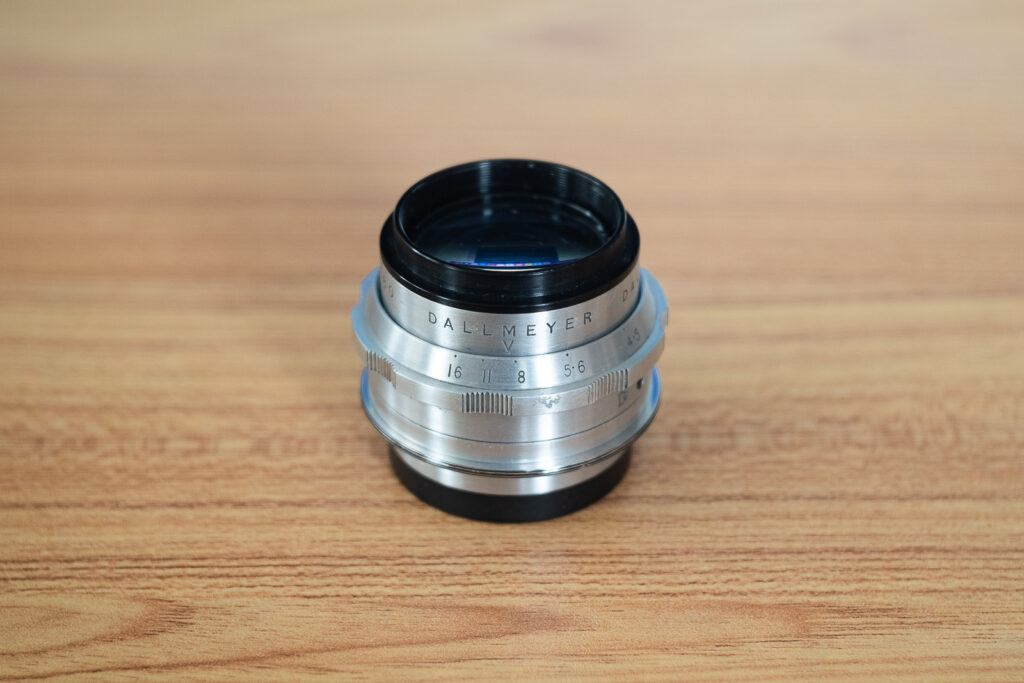
Dallmeyer, being another British company, must have also benefited, especially since they too made lenses for the Reid cameras (there even are Dalrac lenses with the Reid logo engraved on them). This made me think of how similar the Dalrac might be to the Leitz Hektor. They have the same specs, a very similar form factor, take A36 filters, as well as have an optical module that simply unscrews from the rest of the body.
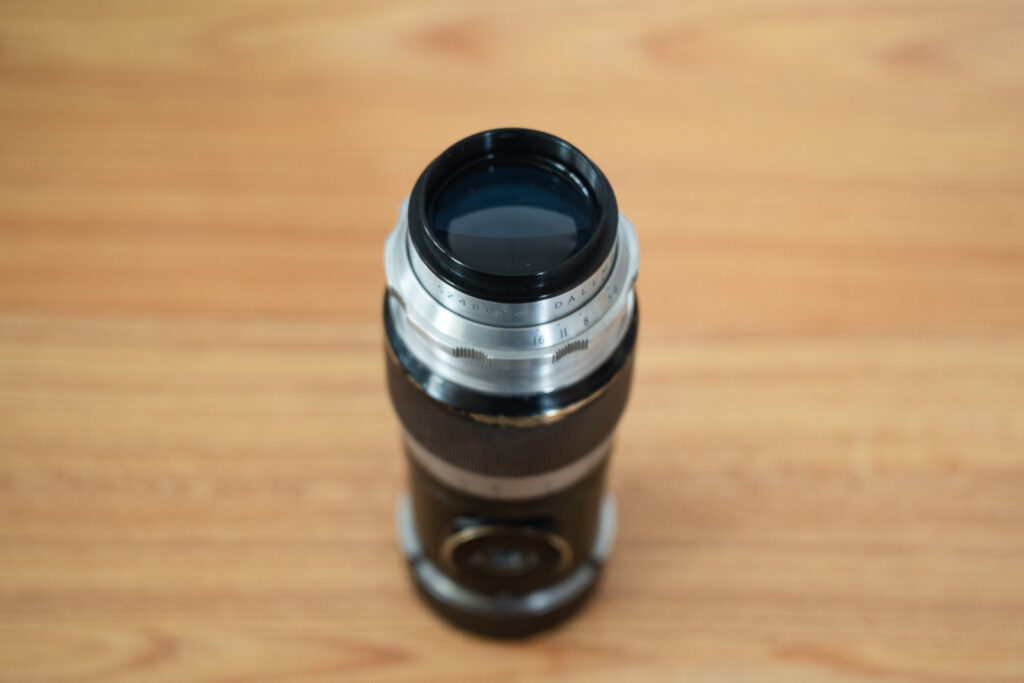
I grabbed my Hektor, unscrewed the optics, and it turns out the thread is exactly the same, and so is the length of the focusing unit and the optical module. I put the Dalrac optics on the Hektor body and of course it doesn’t focus just right on the rangefinder, but it’s not that much off. But most importantly the vignette is greatly improved. The difference is the Hektor uses a mini RF cam that just sits at the top while the Dalrac has one that goes all around the back, creating a smaller opening and causing the hard vignette.
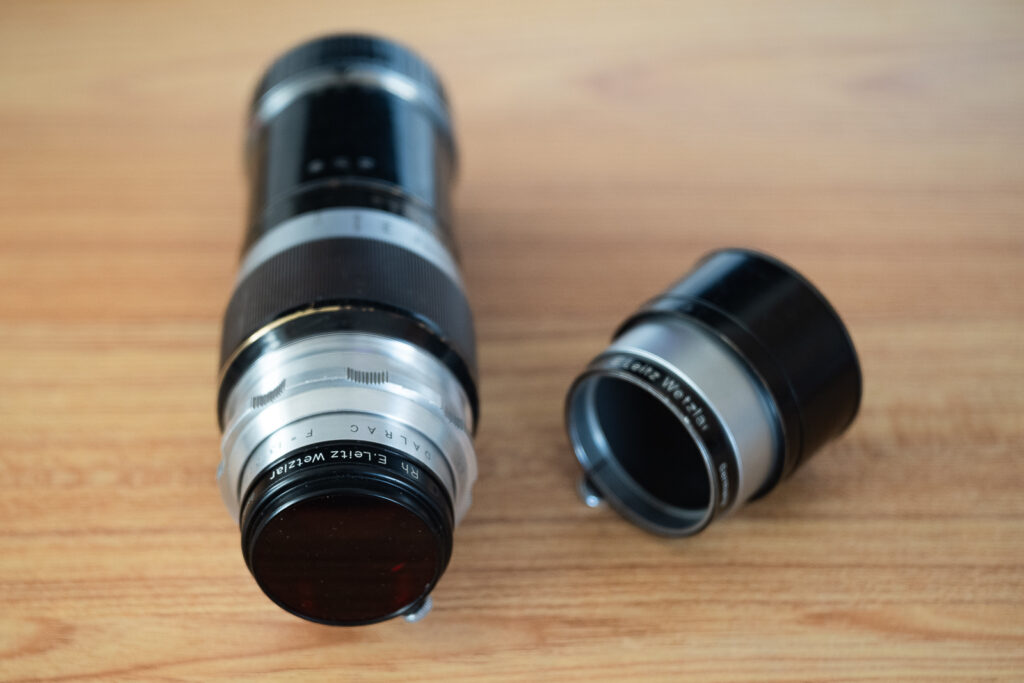
I acquired an extra Hektor focusing unit on Ebay and sent it off with the Dalrac to Skyllaney where besides getting calibrated it enjoyed a thorough CLA. So despite not having tested it since it arrived, I had a hunch it was going to be a great performer. I popped an R.h filter on it (the lightest of the three deep red filters from Leitz) and a FIKUS hood and mounted it on my Monochrome.
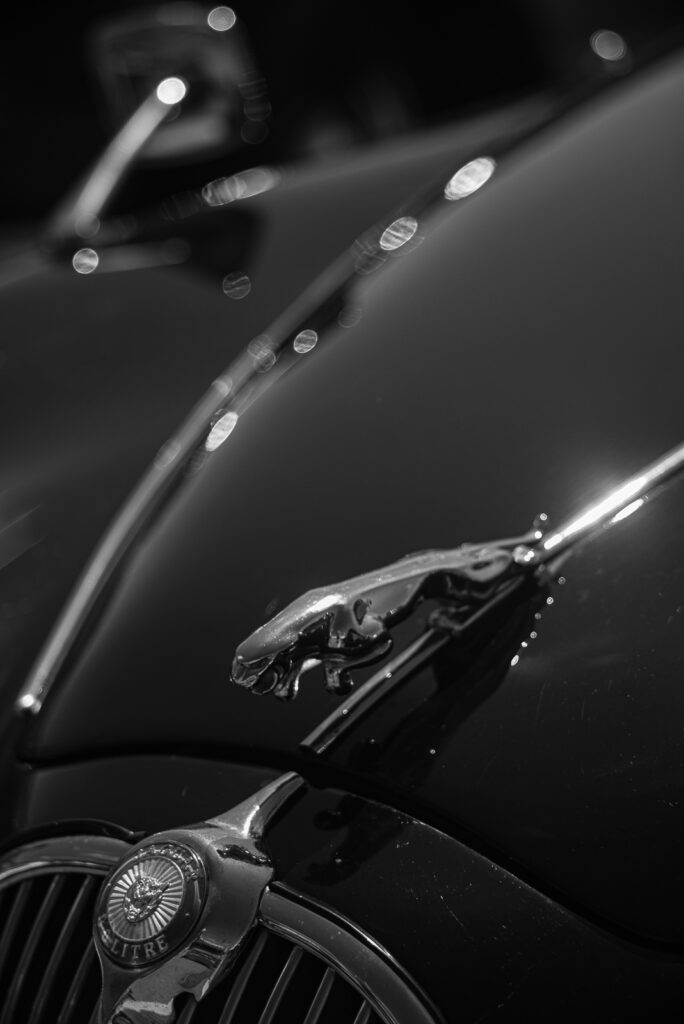
What surprised me the most is that it focuses bang-on even with the deep red filter. Few of my lenses don’t require me to front-focus a bit when using them with a red or deep red filter, but this one worked wonderfully. This was very lucky as shooting low-key in bright sun renders Monochrom’s rear screen almost completely useless.
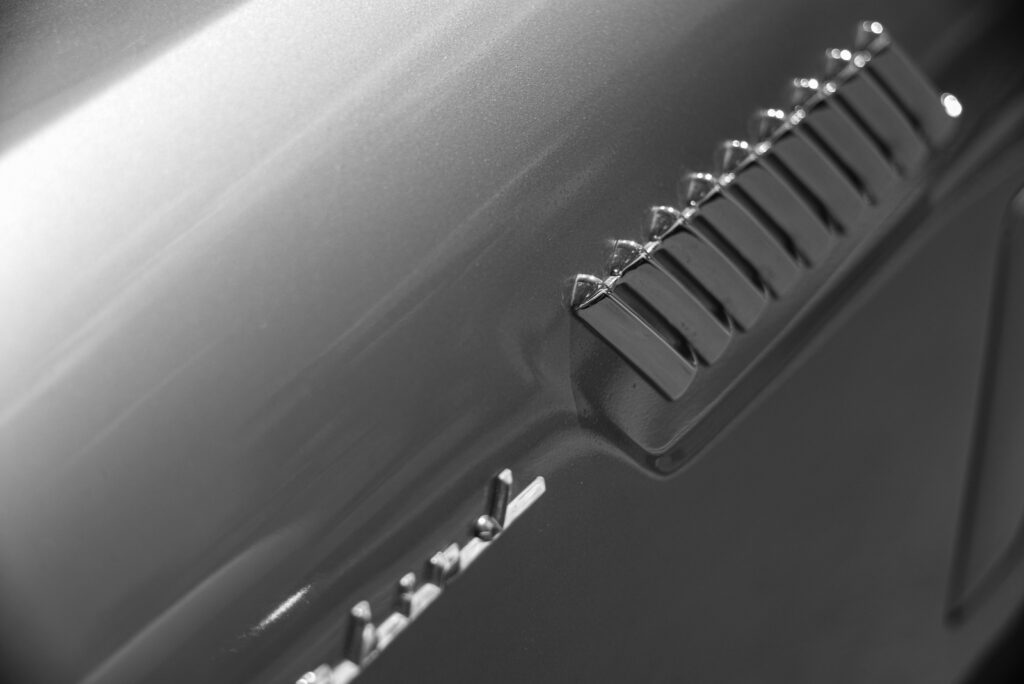
Throughout my stay at the car event I shot the lens wide-open at f/4.5. It produces very clear, crisp images with wonderfully smooth undistracting out-of-focus areas. The contrast was fantastic with the filter, it allowed me to emphasise all the intricate chrome details. The bokeh is a bit bubbly and with that vintage charm despite the lens being quite slow.
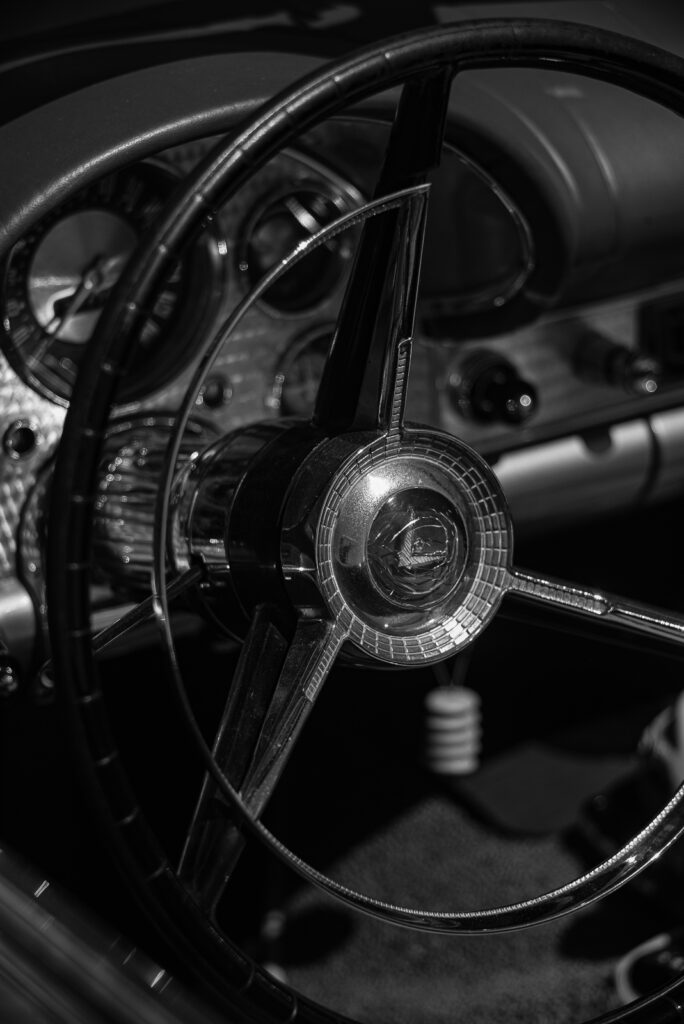
I acquired this lens because I heard good things about the Dallmeyer glass and despite probably being one of their lower-end offerings this lens delivers great quality. It’s not marked with the Reid logo (they would choose the best copies to accompany their cameras) but still I got a good one.
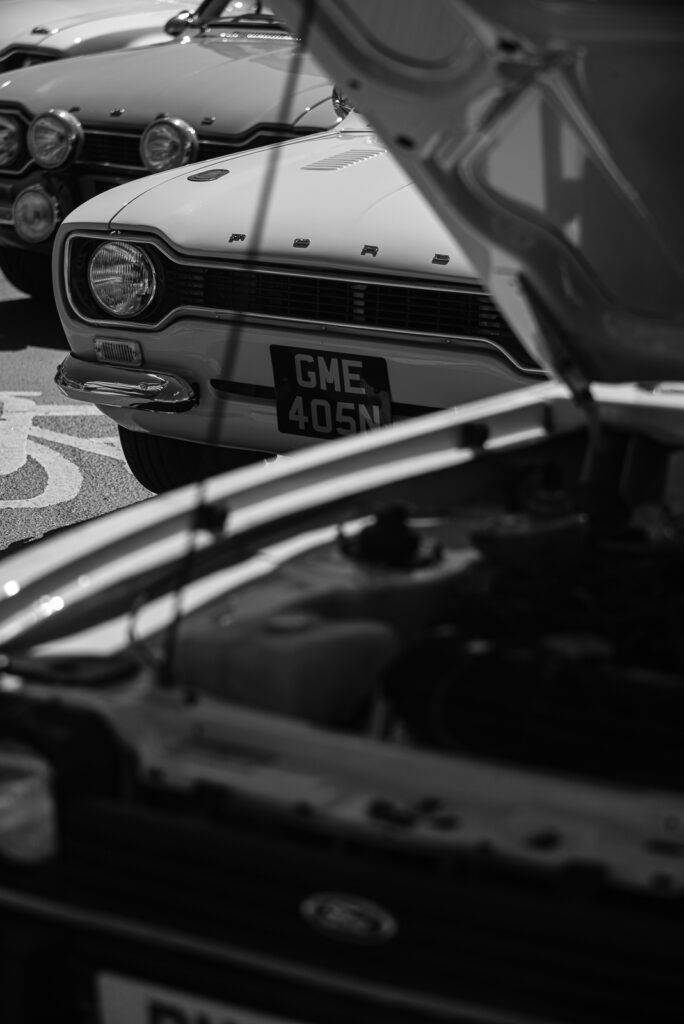
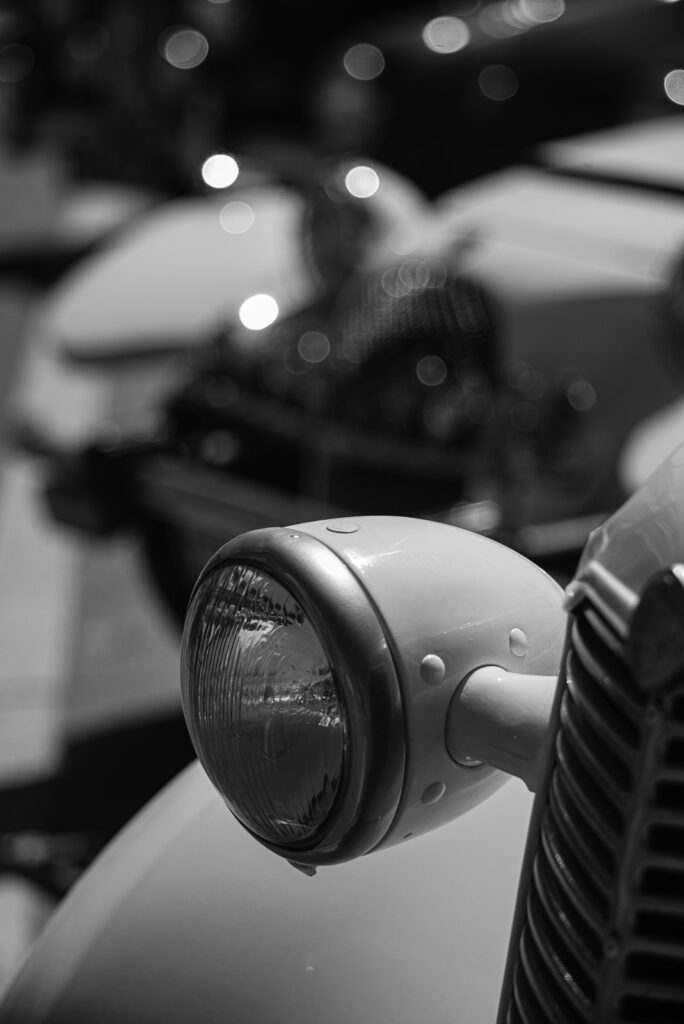
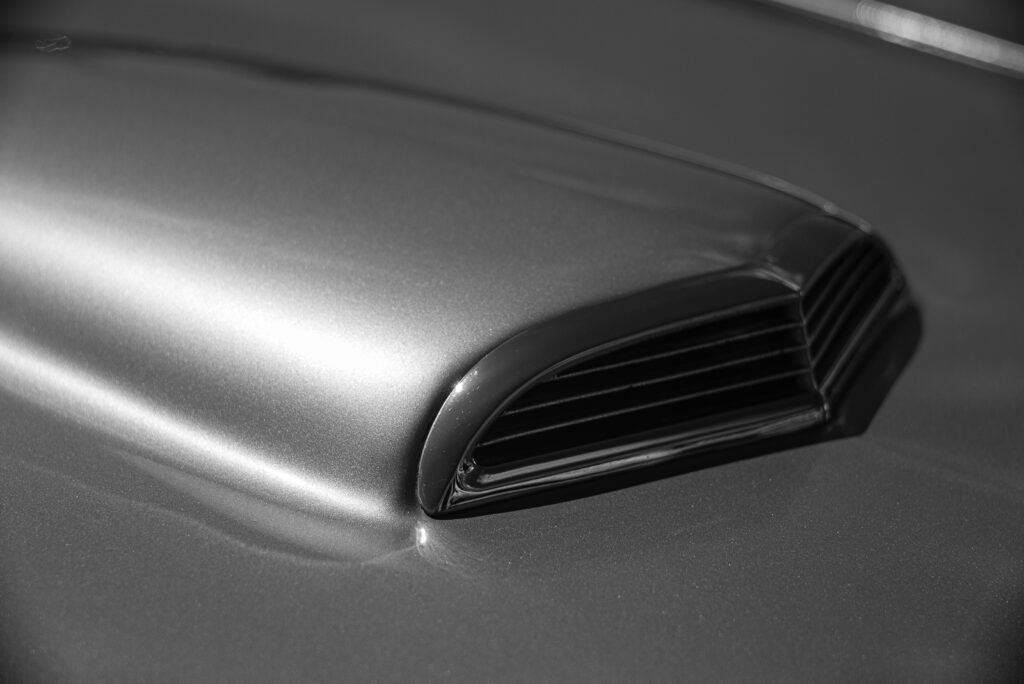
Final thoughts
This was one of those right place, right time, right gear sort of situations. Both camera plus lens combos produced very different results and allowed me to present two very different perspectives on the same subject. I used to go and spot vintage cars on the weekends back when I lived in Spain as lots of people living in the neighbouring area drove classic cars. This day got me a bit sentimental… You can view all the shots from the event on my Flickr.
Share this post:
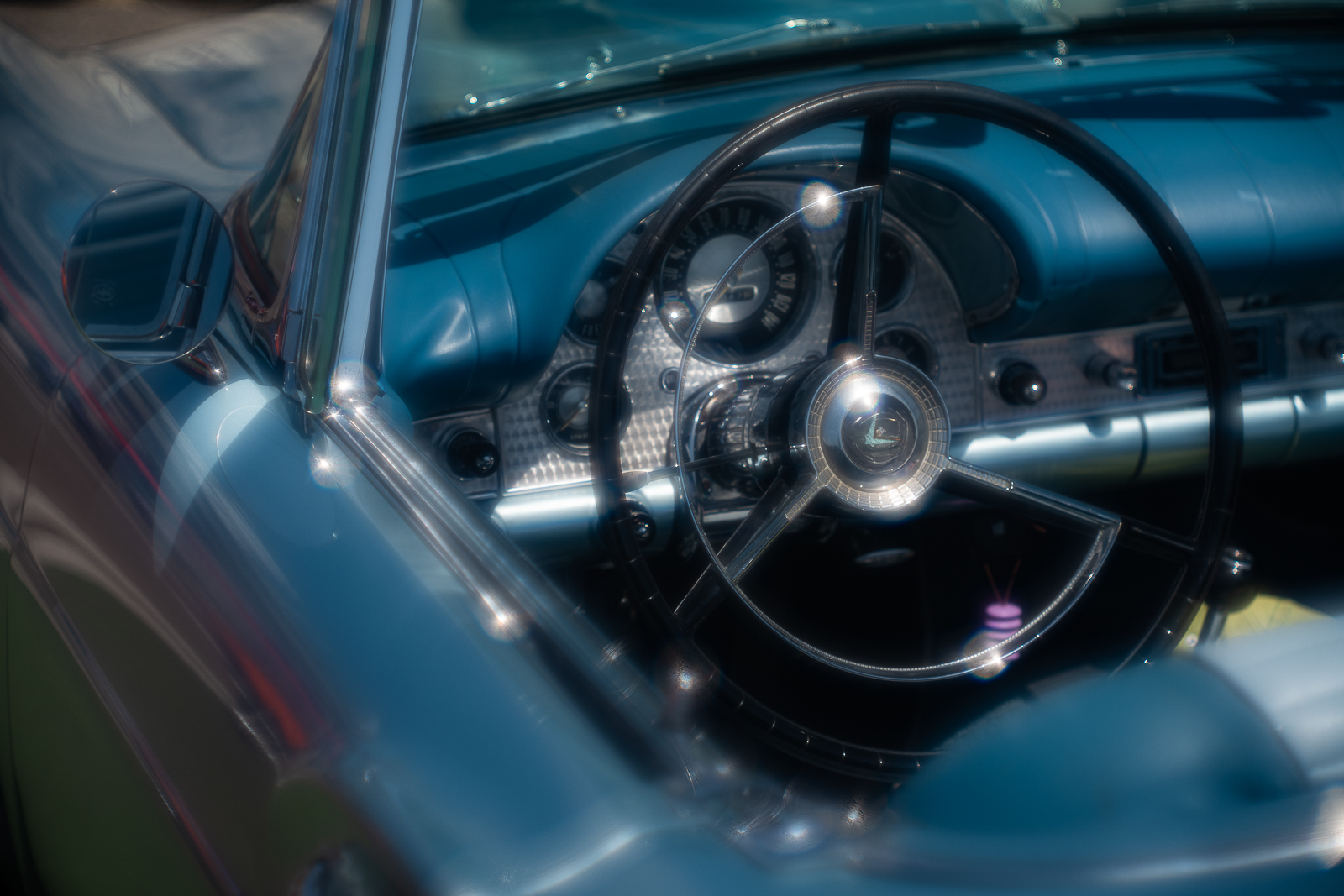
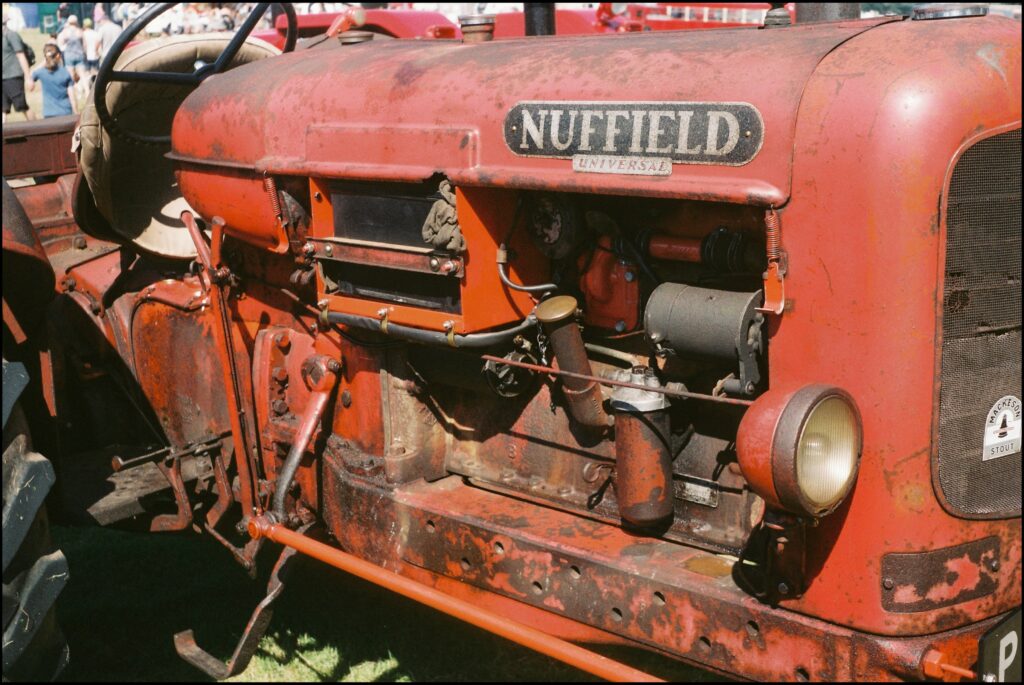

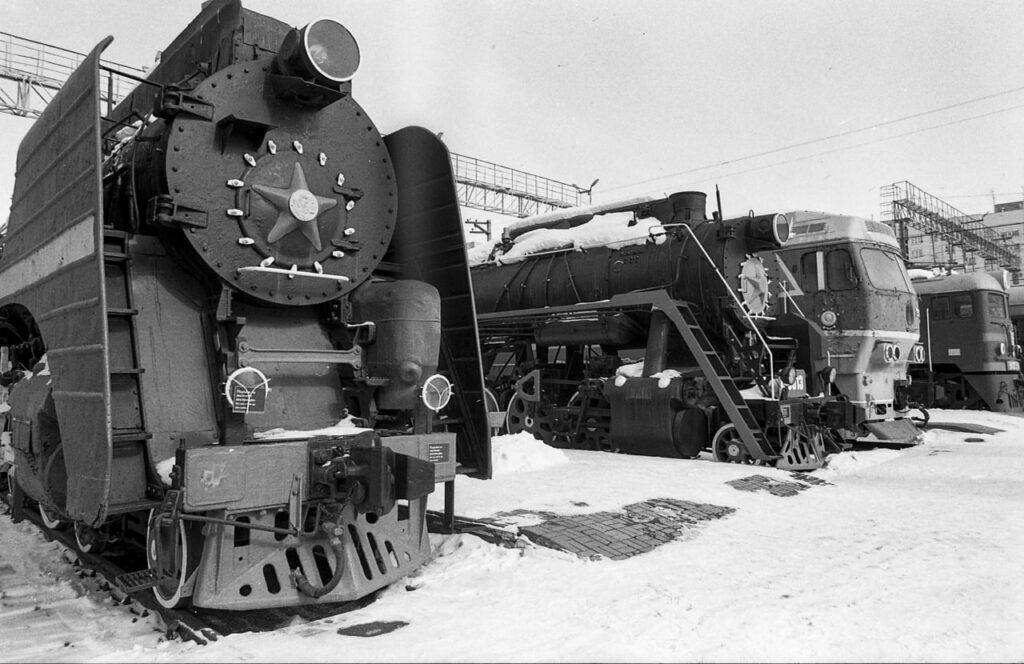
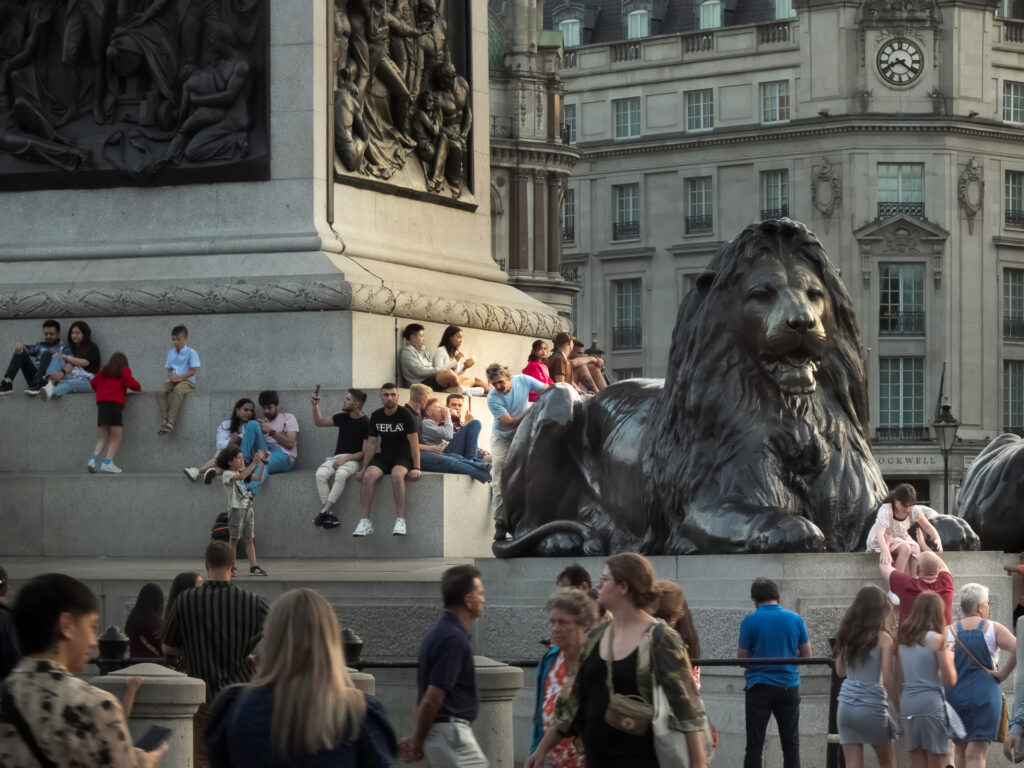




Comments
Christopher Andreyo on Shooting Vintage with Vintage – Classic Cars through Leitz Thambar and Dallmeyer Dalrac
Comment posted: 25/07/2024
Totally agree, subject matter which have some sharp, defined edges with flowing lines work really well to bring out Thambar’s strengths.
The title photo is magnificent, and reminds me of old automobile ads I used to see in magazines back in the 1970’s and 80’s.
I don’t know what lenses were used to film the 1980’s movie Excalibur, but the way the knights armor glows in that movie reminds me also of the Thambar rendering…. something totally unique and I can’t think of another lens thats like this.
Bill Brown on Shooting Vintage with Vintage – Classic Cars through Leitz Thambar and Dallmeyer Dalrac
Comment posted: 25/07/2024
Gary Smith on Shooting Vintage with Vintage – Classic Cars through Leitz Thambar and Dallmeyer Dalrac
Comment posted: 25/07/2024
Steviemac on Shooting Vintage with Vintage – Classic Cars through Leitz Thambar and Dallmeyer Dalrac
Comment posted: 25/07/2024
Stephen Barnett on Shooting Vintage with Vintage – Classic Cars through Leitz Thambar and Dallmeyer Dalrac
Comment posted: 27/07/2024